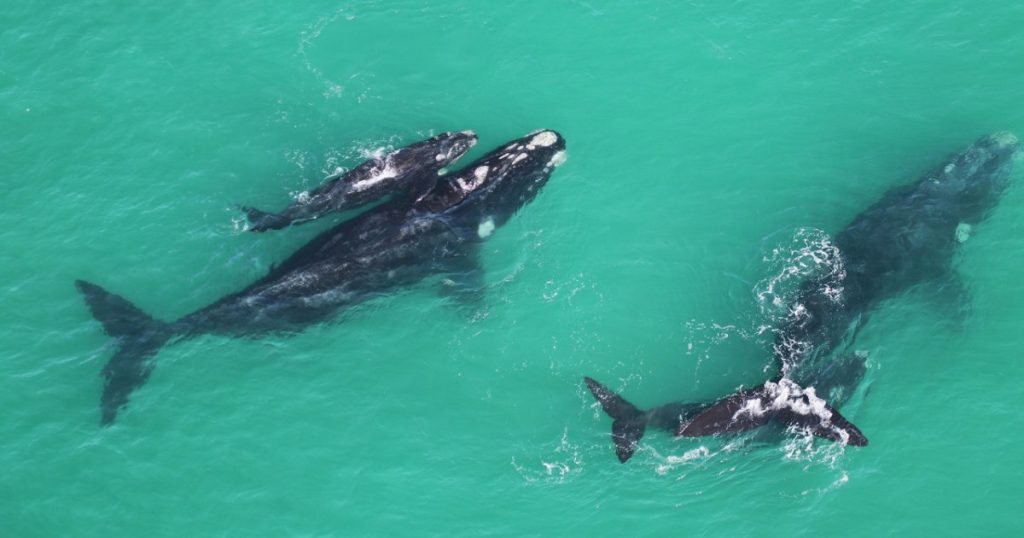The article focuses on the importance of whale research and conservation efforts, particularly in the case of southern right whales in Hermanus, South Africa. The recovery of the southern right whale population is considered a success story in conservation due to efforts to protect them from whaling and other threats. However, new challenges related to climate change have emerged, affecting the whales’ feeding habits and breeding patterns. Scientists like Els Vermeulen are using modern technology, such as satellite tracking data and tags, to study and monitor the whales’ behavior and gather valuable insights.
The Whale Unit in Hermanus, headed by Vermeulen, conducts research on southern right whales using a combination of old data, such as aerial surveys, and new methods, like CTD tags. The data collected over the years has provided a wealth of information about the whales’ population, behavior, and habitat. Researchers like Amy Kennedy, a professional whale tagger, play a crucial role in deploying tags on the whales to gather real-time data about their movements and habits. This information is essential for understanding how the whales are adapting to environmental changes and how they can be protected in the future.
The article also discusses the significance of technology in aiding conservation efforts for whales. Advancements in tags, AI machine learning, and digital cataloging have the potential to revolutionize whale research and monitoring. By harnessing the power of technology, scientists can gather more data, identify individual whales, and track their movements more effectively. Initiatives like the Happy Whale app have already proven successful in gathering data on humpback whales using public-generated photos. Similar technologies could be implemented for southern right whales, providing a more comprehensive understanding of their populations and behavior.
Despite the challenges and threats faced by whales due to climate change, experts like Vermeulen are optimistic about the role technology can play in conservation efforts. By utilizing modern tools and methods, scientists can better understand the impact of climate change on whale populations and marine ecosystems. The combination of traditional research methods and innovative technologies offers the possibility of creating a comprehensive database for southern right whales worldwide. This data will not only benefit the whales but also contribute to a broader understanding of how climate change affects different species in various regions.
The research conducted by organizations like the Whale Unit in Hermanus is essential for monitoring and protecting whale populations, especially in the face of environmental challenges. By studying the behavior and movements of whales using advanced technology, scientists can gather valuable insights into how these creatures are responding to changes in their habitat. The collaboration between researchers, conservationists, and technology experts is crucial for developing effective strategies for ensuring the survival of whale species in the Anthropocene era. With continued efforts and advancements in technology, there is hope for a brighter future for whales and marine ecosystems around the world.













